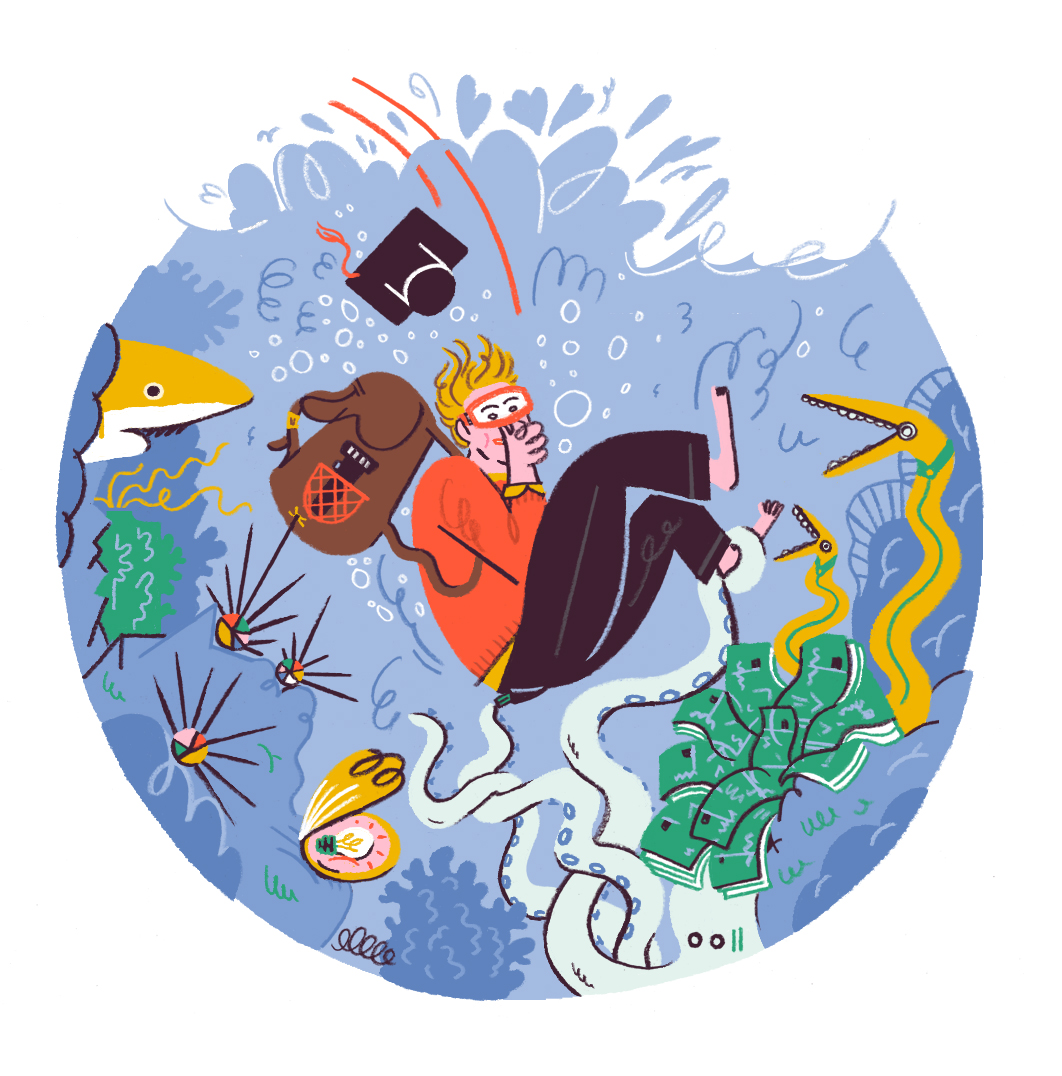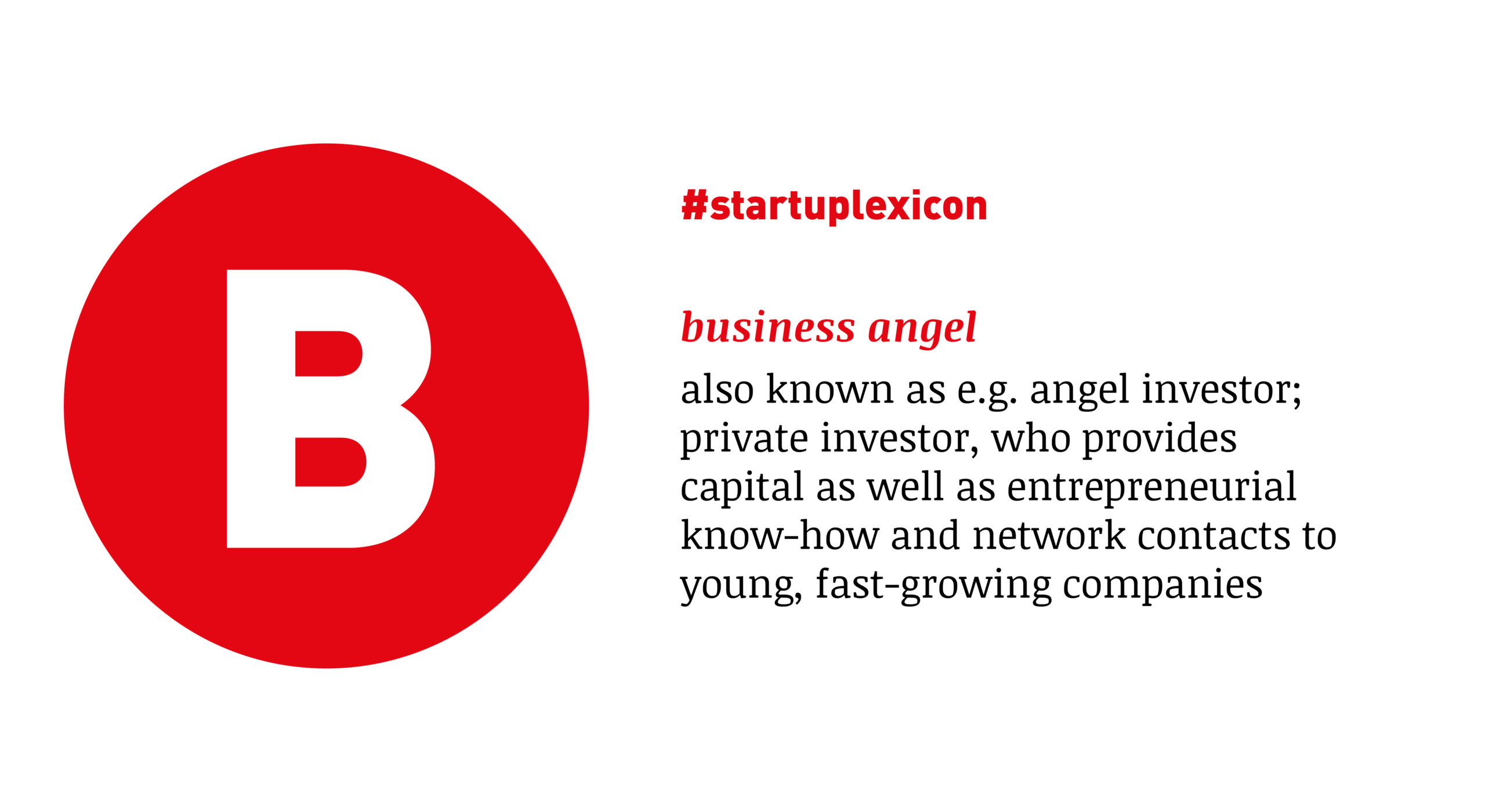
Woulda, coulda, shoulda?
Written by
How reassessing your mistakes and having regrets can turn your failures into success stories
Isn’t it in tough decisions that true entrepreneurial spirit reveals itself? That doesn’t mean you will always make the right call, but according to startup founder Christoph Biermeier, a failure is what you make of it. Read our interview about his fuckups and lessons learned from jumping head-first into the startup world.
You won the 2014 Innovationsakademie Biotechnologie, a 2-day workshop and startup competition. What happened afterwards?
We won a prize of € 50,000 seed-funding and qualified to build our first prototype! The idea was to develop a mold detection device. In order to do so, my co-founder, a biochemist, and myself set up an interdisciplinary team with an engineer, a patent-lawyer and a creative, hence we were a team of five people. It happened by itself, so to speak, that I took the leading role, because I was the one who pitched the idea.
That spells trouble …
It was! We didn’t really have a formal conversation about me taking the lead and which were the roles of each team member. After a while, one of the team members started challenging not only the structure of our meetings but also the general strategic direction of our venture. Thus, we became unproductive and felt like we were wasting our time – it was tough for me to keep the energy level high, especially as we all worked part-time. Another problem I had, was that I was not experienced in leading a team. I didn’t reflect about the dispute in our team and did the worst thing: nothing. Eventually, after developing a 3D-printed prototype, our project came to a halt due to a patent issue. However, the fact that we weren’t a strong team at the time, appears to be the main reason why we decided to transfer the idea to a research institute. Yet, I sometimes ask myself, what could have been … If my team would have functioned better, we might have gone forward with filing for a patent or seeking a collaboration with our competitor.
Which major lesson can other science entrepreneurs take away from your experience?
If you passed the Young Entrepreneurs in Science workshop, you learned about several ways to get funding through programmes designed especially for you! To reach this point is quite easy. Transferring a written idea or a prototype into a first minimum viable product, that is a big step. For this, you will need a team which is 100% committed, because it can take years until you have the first working product to demonstrate to stakeholders or investors. To build this team is something you, as an entrepreneur, need to take seriously. If you pick up the feeling that something is going into the wrong direction, don’t hesitate to have the conversation. If nothing changes, end the collaboration and look for somebody else. From my point of view, a well-functioning team is what matters most.
Having said that, how to go about attracting the right people?
This is something we also learned at the Young Entrepreneurs in Science programme: don’t be shy or reluctant to talk about your idea. Many people seem to think, if they disclose it too early, that somebody will come and copy it. This won’t happen if you keep it simple and interesting! Make a posting at your university’s startup service and see what kind of people are approaching you. Try to find people who are enthusiastic about your idea!
Is this how you came across your first venture partner, prior to the competition at Innovatiosakademie?
I attended the startup programme of the Heinrich-Heine-University in Düsseldorf, back when I was working on my PhD. Once a week, we learned about business plans, IP, legal aspects of founding, and innovation. I met a biochemist there, who intended to do a university spin-off based on the findings in his PhD thesis. We got acquainted and went out for beers, met regularly for lunch, and exchanged ideas. One day he asked me whether I could imagine founding the company together. My answer was yes and, from that point on, we met almost every day during lunchtime. Afterwards we went for walks, discussing plans. That went on for about half a year.

That sounds like an ideal partnership, where did it go wrong?
At that point, the project needed funding for a lab. A team of business angels got my friend’s attention by boasting about their connections to influential people and companies. They pitched to acquire a majority of the shares of the startup and told us that we should not worry too much about the shares, as they are willing to give us a monthly salary right away. I didn’t feel comfortable with that at all! If you really believe in your idea, your currency should be that you hold a decent share of your company. If one day it succeeds, you will get the reward for having spent five to ten years working very hard on a minimum salary. I had some discussions with my partner, but he believed them more than he believed me. At that point I decided to not be part of that venture anymore.
How to spot a “black sheep” among investors?
Listen to your gut feeling! If you have a bad feeling, allow it and seek advice from professionals. You might get the impression that there are only good people running around, because everybody’s nice and calls each other by first name. However, obviously not everyone you come across in this industry means well. In my case, I approached the advisory team at the HHU and they told us that something seems fishy. They were not telling us what to do but trying to be moderators. In the end you, as a founder, need to make the decision.
Even if it’s a tough one …
I quit even though I invested a couple of days a week for about half a year! Nonetheless, I’m happy I listened to my gut. Ultimately, thanks to my ex-business partner, I had the chance to participate in the Innovationsakademie. He passed on the invite to me. This way, it almost felt like I was compensated. Above all, I turned my “failures” into success stories through those and unfavorable yet valuable experiences. I am confident that the same things will likely not happen to me again and I have learned what it really means to found a startup. I would always advise people to jump!
What was something new you took away from the Young Entrepreneurs in Science workshop?
In terms of entrepreneurship you can never have enough practice. It never gets boring, even if you are listening to the 95th presentation or pitch, because you always learn something. Therefore, the four days were very valuable for me and I can highly recommend the programme to anybody. The next thing which comes to mind is the Design Thinking day in particular. I never before had the chance to learn and implement it for an entire day. With that knowledge I am perfectly equipped with regard to my entrepreneurship backpack, carrying all the things I need in order to survive out there. Just like preparing for hiking the Alps [laughing]. I pack a warm sweatshirt, some lighters, a pocketknife, …
Some dots for the dot-voting method …
Christoph: Exactly, all of that. Dotmocracy rules!








